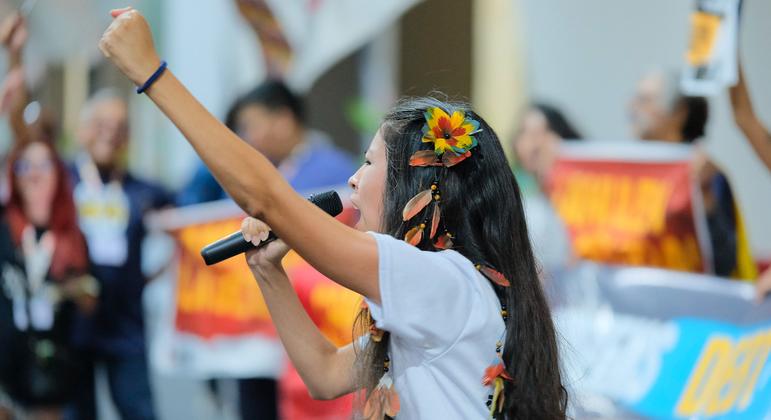Within the framework of the climate summit that began on November 10th, women have taken the lead in discussing how climate change intersects with gender equality. This approach is reflected through the Belém Gender Action Plan, which aims to address the injustices women face due to the impacts of climate change. The plan proposes specific measures in areas such as funding, training, and leadership, highlighting that climate justice cannot be achieved without also addressing gender equality.
Ana Carolina Querino, interim representative of UN Women in Brazil, emphasized that “climate justice only exists when gender equality also exists,” a concept that has resonated widely in current discussions. If approved, the plan will be implemented between the years 2026 and 2034, integrating strategies that promote a just transition and address both adaptation and mitigation of climate change, as well as mechanisms for losses and damages.
In Brazil, recyclers like Nanci Darcolete are on the front lines in the fight against climate change. Darcolete, who has led the organization Pimp My Carroça since 1999, highlights the vital role of waste pickers in reducing emissions and pressure on natural resources. She also emphasizes the benefits of composting for municipalities and waste pickers, while also fighting against environmental pollution.
However, despite the significant participation of women in the recycling sector in Brazil, they face numerous challenges, including racism and gender-based violence. The effects of climate change further complicate their work. Darcolete mentions that rising temperatures and increased flooding disproportionately impact women in low-income communities. She advocates for waste pickers to be recognized as “agents of transformation,” calling for improvements in urban logistics and working conditions.
In Portugal, lawyer Mariana Gomes has found in the law a crucial tool for the climate fight. As founder of Último Recurso, the first group to file a climate litigation case in the country, she currently leads over 170 lawsuits. Gomes argues that legal actions are essential to turn commitments into real obligations, citing the recent decision by the International Court of Justice demanding that States keep global warming below 1.5°C.
For Gomes, citizens have the right to demand a clean and healthy environment from their governments, thus driving initiatives such as Municipal Climate Action Plans. These initiatives are essential to prepare authorities for climate disasters, such as droughts and floods, and to ensure that adaptation and mitigation strategies consider the specific impact of these events on women, who often face greater risks of violence and caregiving burdens. Through litigation, Gomes seeks to unlock funding and compensations that benefit affected communities and protect the rights of women.
via: MiMub in Spanish
